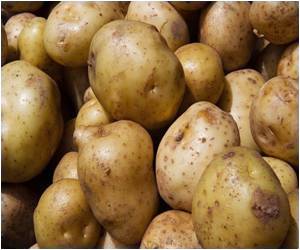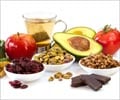Dietary potassium plays an important role in preventing heart diseases by reducing the risk of vascular calcification and arterial stiffness.
- Higher levels of dietary potassium can help prevent heart disease and atherosclerosis
- Increased dietary potassium levels lessened vascular calcification and aortic stiffness
- Foods that are good sources of potassium are banana, avocado
How Dietary Potassium Prevents Hardening of Arteries?
Arterial stiffness is an important health problem as it is predictive of heart disease and death from heart disease. The research team unraveled the molecular mechanism underlying the effects of low or high dietary potassium.The UAB research team determined the causative link between reduced dietary potassium and vascular calcification in atherosclerosis. They also uncovered the underlying pathogenic mechanisms.
The study was carried out in the atherosclerosis-prone mouse model. Mice that lack apolipoprotein E are at a higher risk of developing cardiovascular disease when fed a high-fat diet.
The diet varied in the concentrations of potassium - low (0.3%), normal (0.7%) and high (2.1%). Mice fed a low-potassium diet had a significant increase in vascular calcification. However, mice fed a high-potassium diet had markedly inhibited vascular calcification.
Arterial stiffness was measured using pulse wave velocity. Mice on the low-potassium diet had increased arterial stiffness and a high-potassium diet had decreased stiffness.
"The findings have important translational potential. Since they demonstrate the benefit of adequate potassium supplementation on prevention of vascular calcification in atherosclerosis-prone mice, and the adverse effect of low potassium intake," said Dr Paul Sanders, professor of nephrology in the UAB Department of Medicine.
The findings of the study show how vascular smooth muscle cells in the arteries regulate vascular calcification. The study emphasizes the need to consider dietary intake of potassium in the prevention of atherosclerosis. It also provides new targets for potential therapies to prevent or treat atherosclerotic vascular calcification and arterial stiffness.
Mechanism of Potassium in Preventing Vascular Calcification
Low potassium levels in the culture media enhanced calcification of vascular smooth muscle cells. Previous studies have shown that calcification of vascular smooth muscle cells resembles the differentiation of bone cells, which leads to the transformation of smooth muscle cells into bone-like cells.
The UAB research team tested the effect of growing vascular smooth muscle cells in low-potassium cell culture. They found that low-potassium levels promoted the expression of several gene markers that are hallmarks of bone cells, but decreased the expression of vascular smooth muscle cell markers. This suggests that the transformation of the vascular smooth muscle cells into bone-like cells under low-potassium conditions.
Low-potassium levels elevated intracellular calcium in the vascular smooth muscle cells via a potassium transport channel called the inward rectifier potassium channel. This mechanism was accompanied by activation of several known downstream mediators, including protein kinase C and the calcium-activated cAMP response element-binding protein (CREB).
CREB activation increased autophagy in low-potassium levels. Autophagy plays an important role in mediating calcification of vascular smooth muscle cells induced by the low-potassium condition. The research team used autophagy inhibitors and found that blocking autophagy can block calcification.
The research team tested the roles of the CREB activation and autophagy signals then tested in the mouse artery cross-section and in mouse models with low, normal or high levels of potassium in the culture or diet. The results support the vital role for potassium to regulate vascular calcification through calcium signaling, CREB, and autophagy.
Food Sources of Potassium
Potassium is a micronutrient that assists in a range of essential body functions such as blood pressure, normal water balance, muscle contractions, digestion, heart rhythm and pH balance.
Some fo the good sources of potassium are banana, avocado, apricots, artichokes, cantaloupe, potatoes, prunes, pumpkin, spinach, sweet potatoes and tomatoes.
Reference:
-
Yong Sun, Chang Hyun Byon, Youfeng Yang, Wayne E. Bradley, Louis J. Dell’Italia, Paul W. Sanders, Anupam Agarwal, Hui Wu, Yabing Chen. Dietary potassium regulates vascular calcification and arterial stiffness. JCI Insight, (2017) DOI: 10.1172/jci.insight.94920
Source-Medindia
















